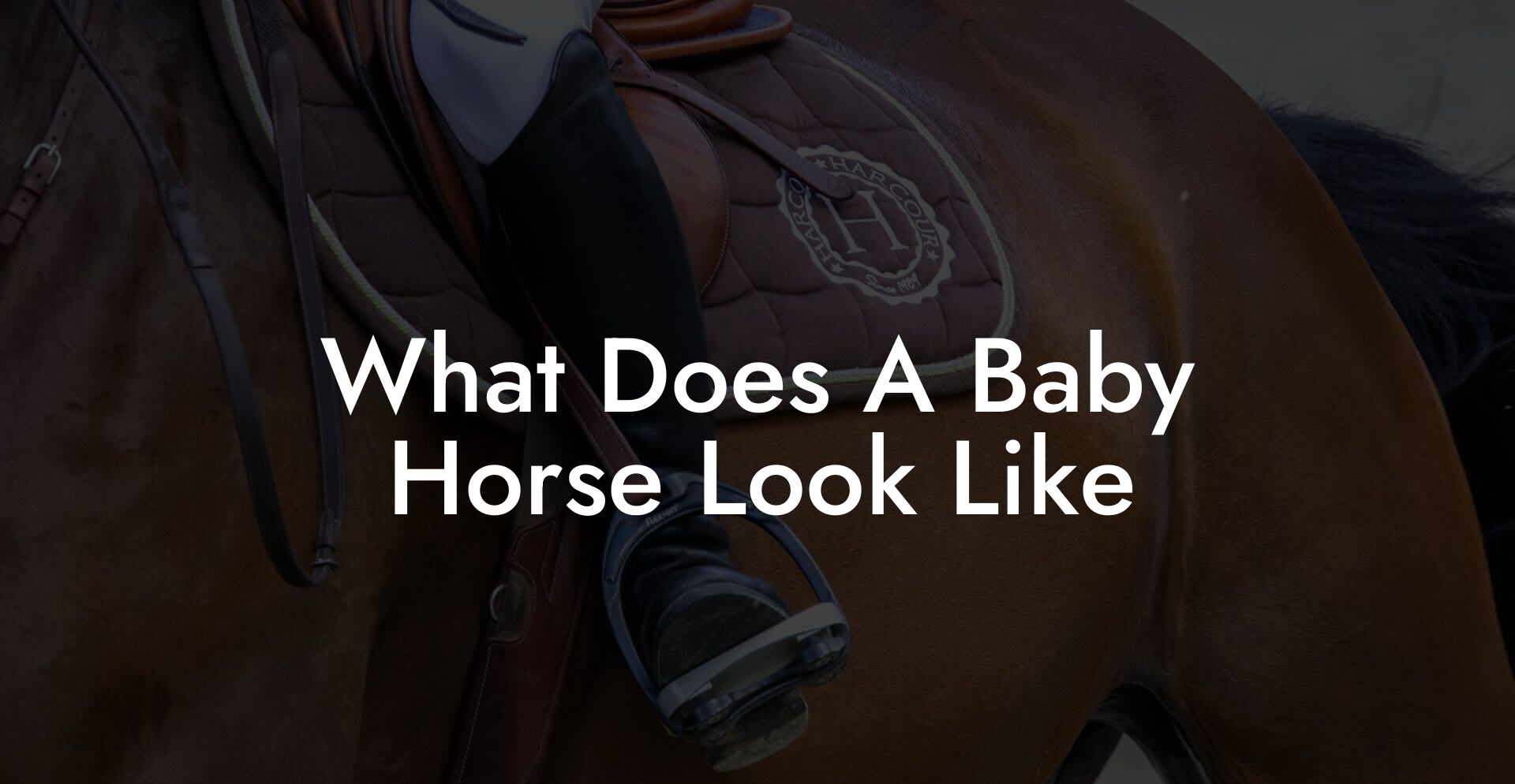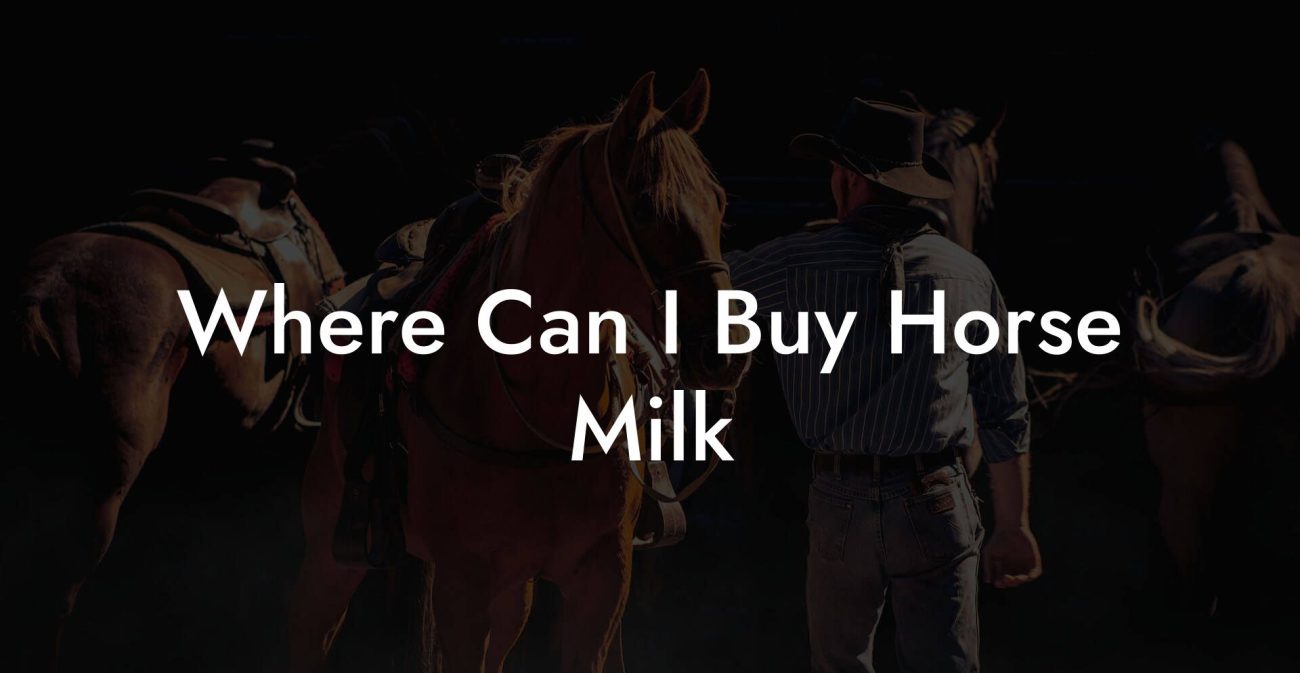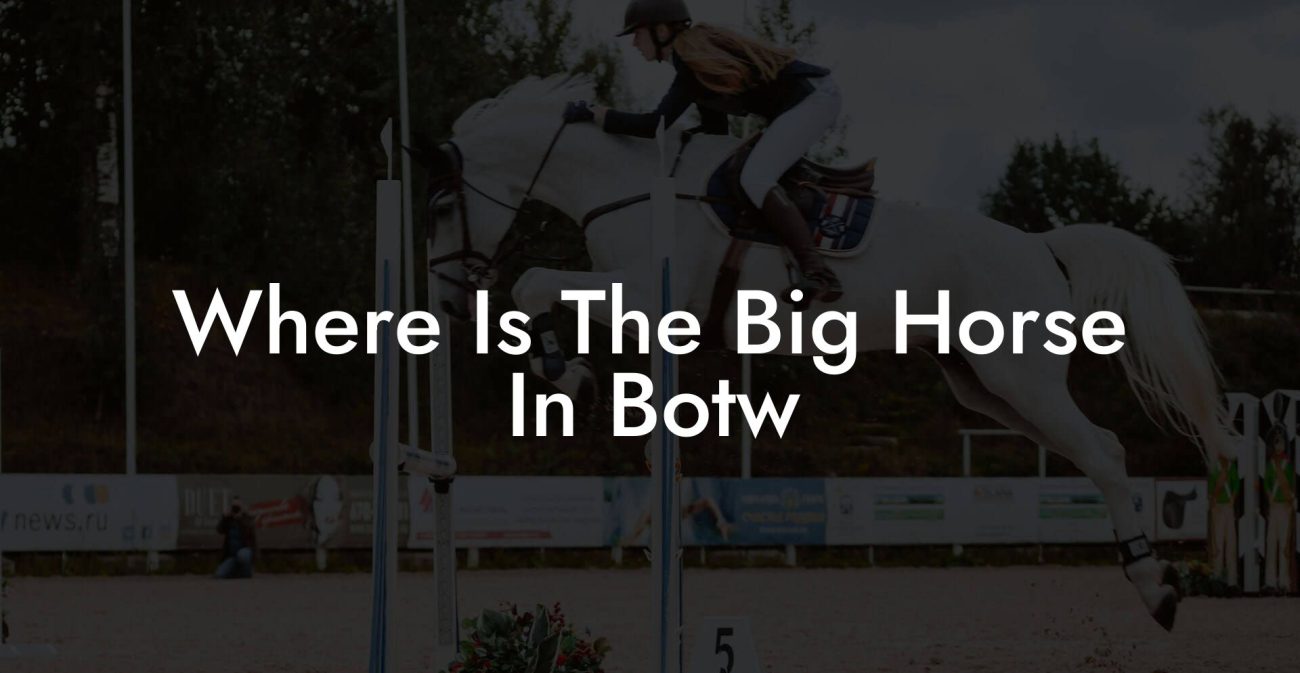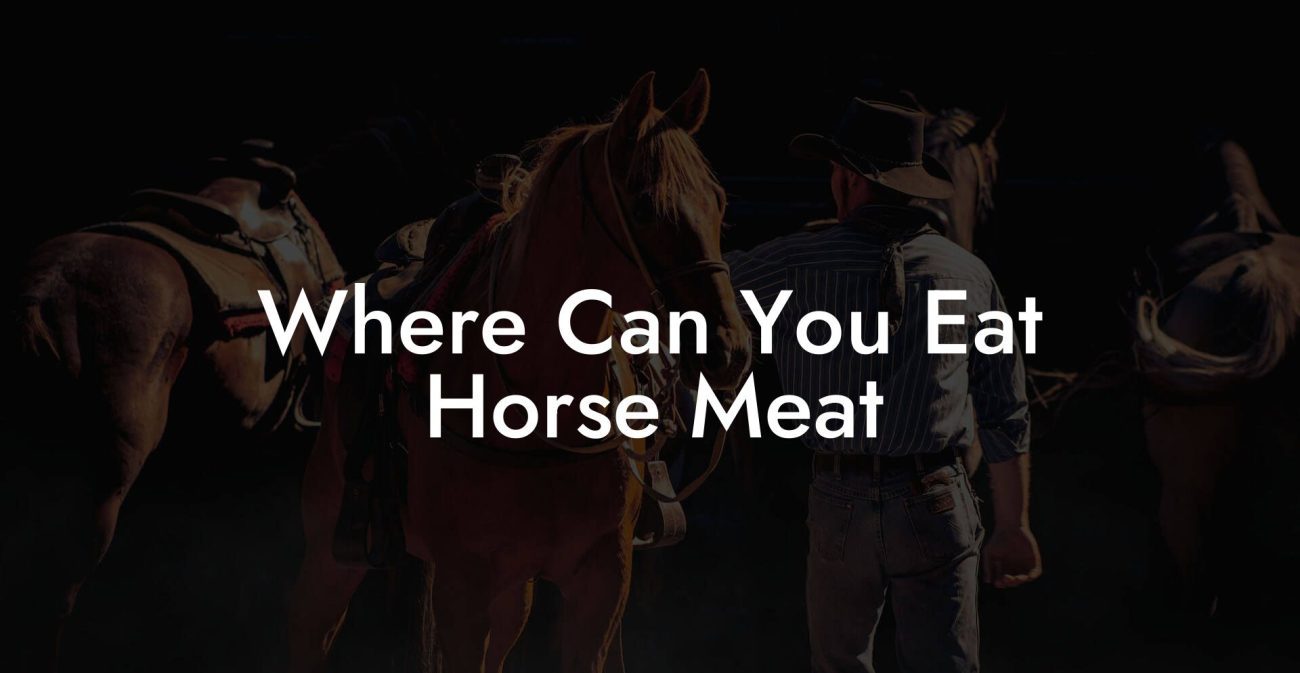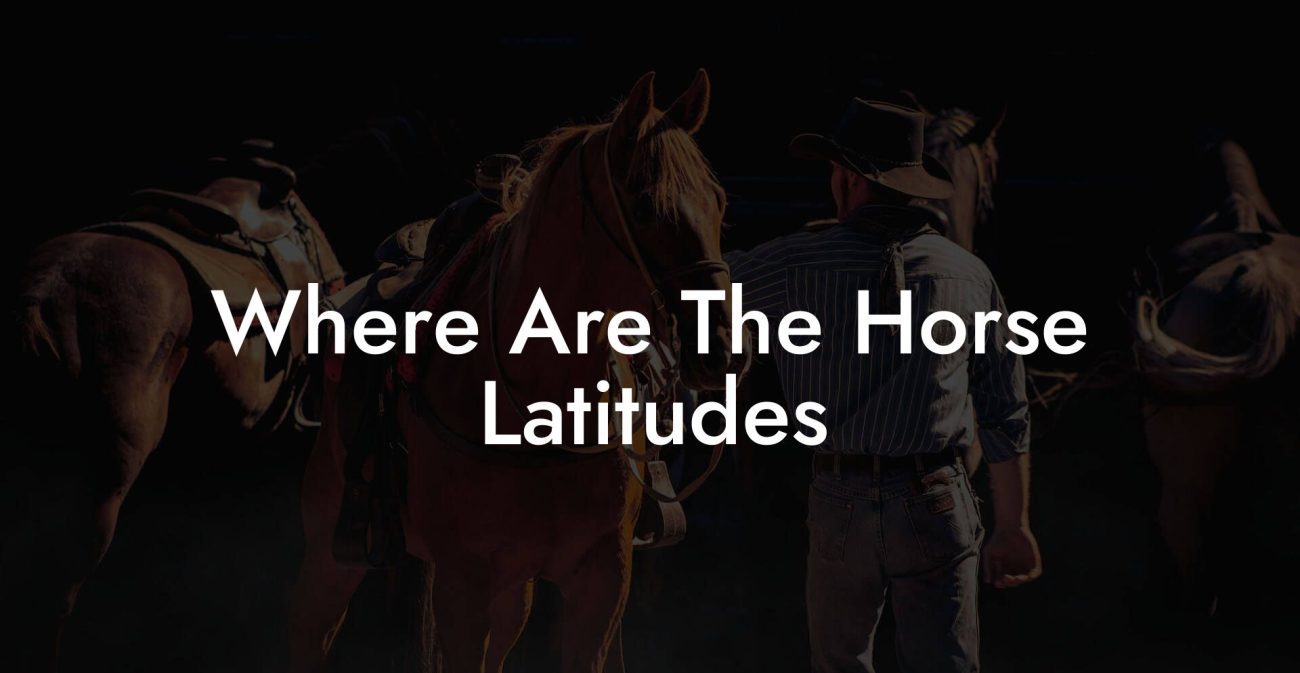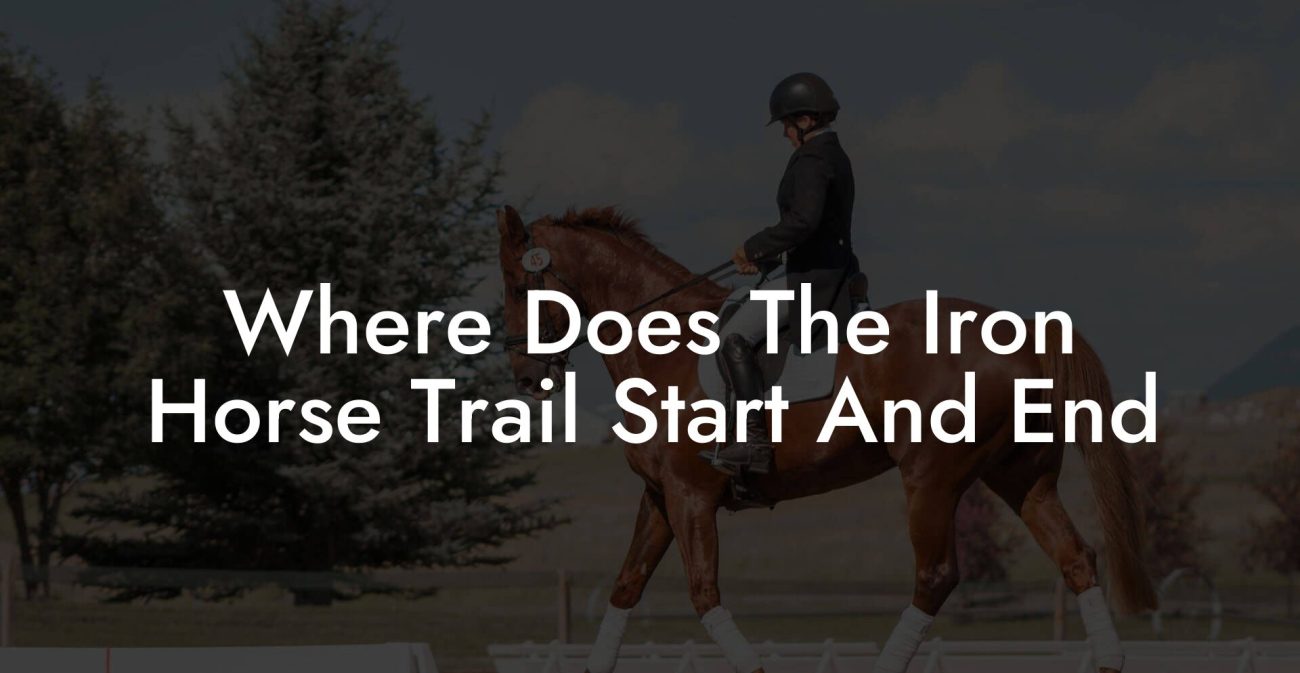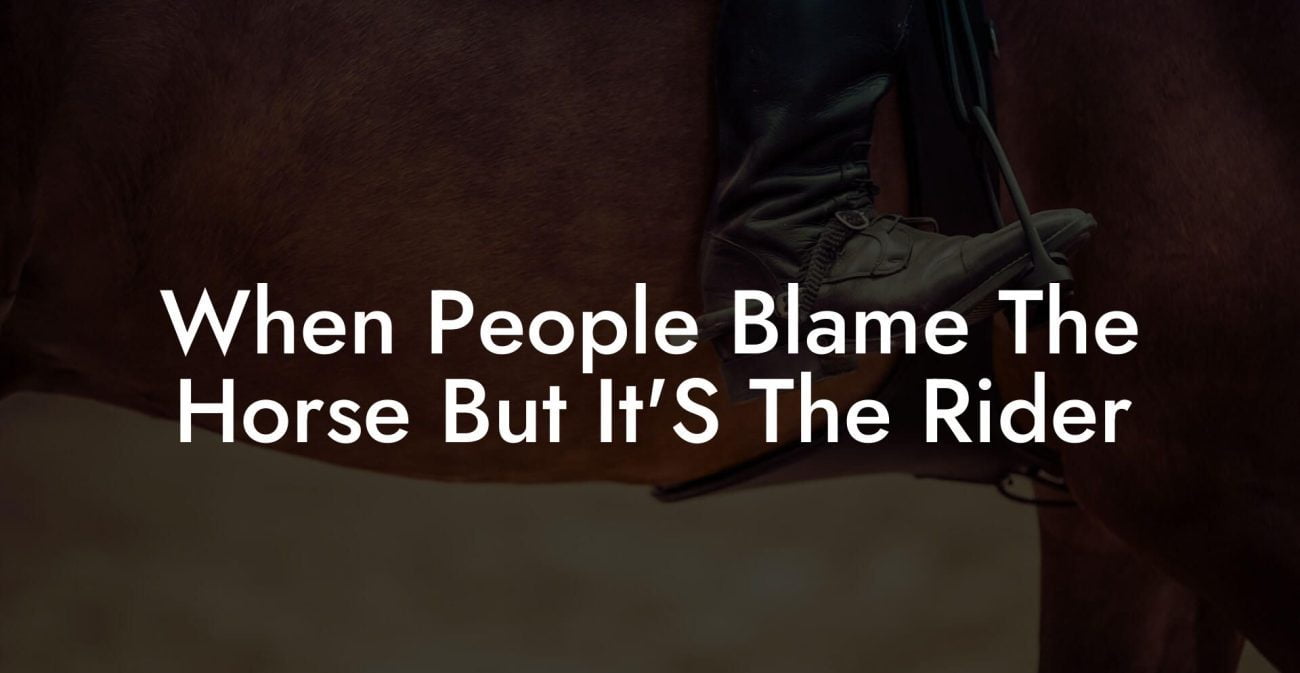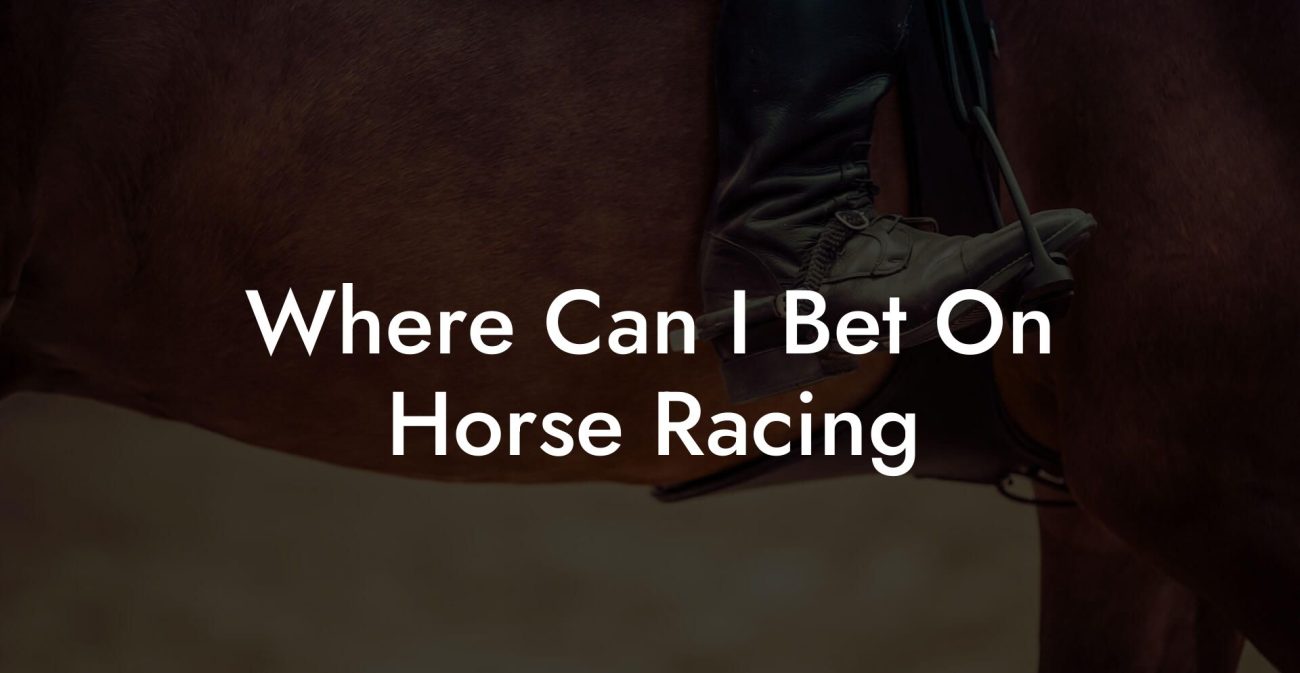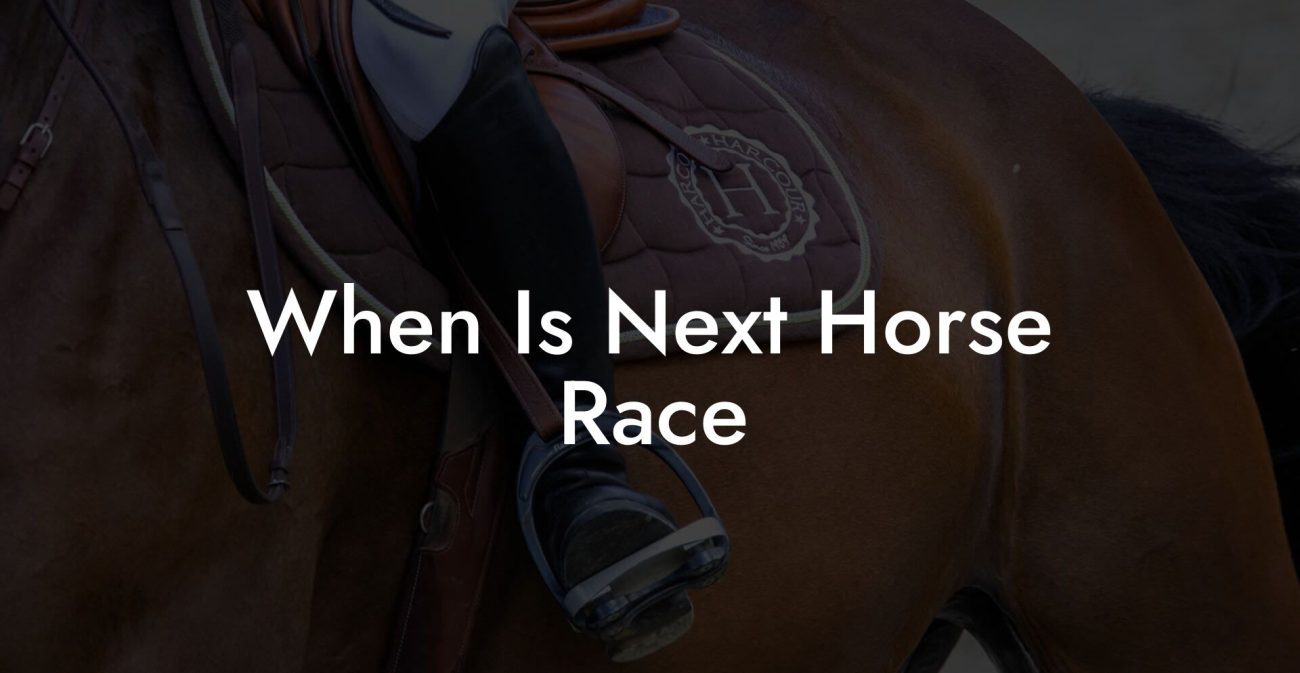From the moment a tiny foal takes its first wobbly steps, there's an undeniable charisma that turns heads and melts hearts. In the enchanting world of baby horses, every detail matters: the oversized, curious eyes, the soft, downy coat, and the playful antics that make each moment feel like a scene from a heartwarming indie film. Whether you’re a first-time equestrian enthusiast or a seasoned rider rediscovering the magic of youth, this guide dives deep into what makes these delightful foals so irresistibly adorable, and crucially, how to care for them like the cool, savvy millennial or Gen-Z equine caretaker you are.
Quick Links to Useful Sections
- The Adorable Anatomy of a Baby Horse
- From Newborn Foal to Frisky Friend: The Journey Unfolds
- Cultivating Care: Essential Tips for Baby Horse Owners
- Decoding Foal Nutrition: Fueling Future Champions
- Grooming 101: Keeping Your Foal Fresh, Fun, and Fascinating
- Bonding Beyond the Bridle: Socializing and Handling Your Foal
- Myths and Realities of Baby Horses
- Seasonal Care: Adjusting to Weather and Environment
- Modern Equine Technology: Apps, Trackers, and More
- Resources and Community Support: Your Next Steps
- Expert Tips and Real-Life Stories: Transformations Through Care
- Innovative Approaches to Training: Turning Play into Progress
- The Magic of Milestones: Celebrating Growth and Progress
- Baby Horse FAQs: Your Burning Questions Answered
- Your Adventure with Baby Horses: A Journey of Joy, Growth, and Connection
The Adorable Anatomy of a Baby Horse
A baby horse, also known as a foal, is a miniature marvel, perfectly designed by nature to be both cute and resilient. With soft, velvety fur that often transitions from fuzzy down to sleek adult hair, foals captivate with their expressive eyes that seem to say, “What adventure awaits today?” Their ears stand tall like little satellite dishes, tuned to pick up both the whisper of the wind and the buzz of excitement from their herd.
Physically, foals sport a mix of baby fat and muscular potential. Their legs, though a bit wobbly, are built for quick sprints and clumsy dashes around their paddock. While one moment they may be napping away in the cool shade, the next, they’re ready to bound off on a spontaneous play session with their equally curious companions. These swift bursts of energy aren’t just adorable; they’re also a sign of the boundless vitality and strength waiting to be unleashed as they grow.
Look closer, and you’ll spot other charming traits: a gentle muzzle, a mane in the making that hints at future majesty, and a tail that swishes like a metronome, keeping pace with their youthful exuberance. Every part of a baby horse is perfectly crafted for a life filled with exploration, growth, and a healthy dose of good-natured mischief.
From Newborn Foal to Frisky Friend: The Journey Unfolds
The early stages of a foal’s life are a rollercoaster of rapid physical and emotional transformations. During the first few hours after birth, foals are all business: nursing, bonding with their mothers, and discovering the basics of balance. Their initial days are critical, as they learn important lessons in social behavior and equine etiquette from the herd.
As they gradually gain strength, these miniature equines start to experiment with their environment. The first tentative steps eventually give way to breezy gallops and playful spats with siblings. Every leap and stumble teaches them coordination and the art of resilience, forming the foundation of a strong, confident horse.
What's truly fascinating is how quickly a baby horse becomes part of a social structure. Foals quickly learn the dynamics of their herd, picking up cues from adults about where to find food, how to stay safe, and even when it’s time to kick back and relax. This early socialization is not only essential for their safety, but it’s also an important aspect of their emotional development, a key factor for any horse owner aiming to nurture a well-rounded, happy companion.
Cultivating Care: Essential Tips for Baby Horse Owners
Taking care of a baby horse is as rewarding as it is challenging. Whether you're nurturing a foal on a sprawling farm or taking on the role in an urban equestrian center, understanding the unique needs of these pint-sized powerhouses is essential for their health and happiness. Here are some must-know tips to keep your foal thriving:
- nutrition is Key: Foals rely on a balanced diet that begins with their mother’s milk. As they gradually transition to solid food, high-quality hay, grains, and specially formulated foal feed become essential.
- Safe and Stimulating Environment: Create a space that’s both secure and full of learning opportunities. Fencing should be robust; the area should be free of hazards yet offer plenty of room for exploratory play.
- Regular Health Checks: A proactive approach to veterinary care, including vaccinations, deworming schedules, and routine check-ups, ensures your foal stays in top shape.
- grooming and Hygiene: Regular grooming sessions not only keep the coat shiny and the skin healthy but also strengthen the bond between you and your foal. Get in on those daily comb-throughs and dust baths!
- Socialization: Interaction with other horses and gentle handling by people from a young age help build a well-adjusted, friendly adult horse.
Integrating these care tips into your daily routine isn’t just about meeting basic needs, it’s an opportunity to establish a deep connection with your foal that will last a lifetime.
Decoding Foal Nutrition: Fueling Future Champions
Just like any other young creature, baby horses require a nutrition plan that supports rapid growth and boundless energy. The ideal foal diet starts with the richness of its mother's milk, which is naturally loaded with antibodies and nutrients essential for an early healthy start. As the foal begins nibbling on solid foods, the diet should be gradually diversified.
Key nutritional components include:
- High-Quality Pasture: When weather permits, pasture grazing offers fresh, natural forage that not only satisfies hunger but also aids in digestion.
- Foal-Formulated Feed: Specially designed foal feeds are enriched with vitamins and minerals to support bone growth, muscle development, and overall vitality.
- Fresh Water: An often-overlooked essential, hydration plays a crucial role in metabolic functions and maintaining body temperature.
Monitoring the foal’s weight and general health can guide subtle adjustments in its diet. By staying engaged with your veterinarian and equine nutritionist, you can fine-tune your foal's meals to match its developmental milestones.
Integrating natural supplements, such as omega-3 fatty acids and carefully chosen vitamins, can further boost growth and immune resilience. Think of it as crafting the ultimate superfood salad, but for your foal!
Grooming 101: Keeping Your Foal Fresh, Fun, and Fascinating
Grooming isn’t just a chore, it’s a cherished ritual that nurtures trust, enhances circulation, and doubles-up as quality bonding time. Baby horses, with their ever-changing coats, thrive on regular grooming sessions that help keep their skin healthy and their fur in peak condition.
Here are some insider tips to streamline your foal grooming routine:
- Daily Brushing: Use a soft-bristled brush to gently remove dirt and loose hair. This also stimulates the skin, promoting natural oil distribution for a shiny coat.
- Bath Time Basics: Occasional baths using equine-friendly shampoos can ward off skin irritations. Be sure to thoroughly dry your foal, especially in cooler climates!
- Hoof Care: Regularly check and clean your foal’s hooves. Small stones or debris might find their way in, potentially causing discomfort or even infection.
- Massage and Touch: Lightly massaging your foal’s neck and shoulders can help ease muscle tension and pave the way for a calmer temperament overall.
Over time, these grooming rituals develop into moments of mutual trust, making your baby horse not just a pet, but a beloved friend. And let’s be honest, there’s something downright satisfying about seeing that glossy coat reflecting a nugget of your own care.
Bonding Beyond the Bridle: Socializing and Handling Your Foal
Establishing a deep and trusting connection with your foal is the cornerstone of successful equine care. Much like human relationships, the early interactions can set the tone for future behavior, training responsiveness, and overall temperament.
A few tried-and-true strategies for building that bond include:
- Gentle Handling: Frequent, calm handling sessions help your foal get comfortable with human contact. This includes everything from casual petting to guided walks around the stable.
- Positive Reinforcement: Celebrate every small milestone, a calm response, a successful step, a friendly nuzzle, with treats, kind words, or even a playful pat. This instills trust and reinforces desirable behaviors.
- Safe Exploration: Allow your foal ample space to roam and learn about their environment. Supervised play sessions not only aid physical development but also reinforce the idea that the world is a safe, exciting space.
- Consistency and Patience: Every foal learns at its own pace. Consistent routines and lots of patience go a long way in fostering a strong, lifelong bond.
In today’s fast-paced culture, it can be tempting to rush through introductions and skip the “getting to know you” phase. However, taking the time to truly connect with your foal ensures that you both have a foundation of trust, a critical element for future training, handling, and even participation in equestrian sports.
Remember, every foal has its own personality, quirks, and rhythms. Embrace these differences with humor and curiosity, and you’ll find that building a bond with your new equine friend can be one of the most enriching parts of your journey.
Myths and Realities of Baby Horses
In the world of equine care, myths and misconceptions abound. For every picture-perfect, wide-eyed foal, there’s a misconception just waiting to be debunked. Let’s sift through some of the most common myths about baby horses and set the record straight.
Myth 1: Baby horses are always fragile and need to be coddled constantly.
Reality: While foals are delicate in their early days, they’re also remarkably resilient. With proper care and guidance, they quickly develop the strength and stamina to engage in playful antics and even light training.
Myth 2: All baby horses look exactly alike.
Reality: Just like human babies, foals come in a dazzling array of colors, patterns, and shapes. From the striking pinto patterns to the solid, glossy coats of some breeds, variety is nature’s signature.
Myth 3: Foals don’t require as much exercise as older horses.
Reality: Though exercise regimens are different for a growing foal, movement is essential. Supervised, playful exercise helps develop coordination and muscle tone, setting the stage for a healthy adult life.
Myth 4: Grooming a foal is optional if you provide good food and shelter.
Reality: Grooming is a critical part of equine care, enhancing not only appearance but also physical and emotional health. Regular grooming removes dirt, prevents skin issues, and strengthens the bond between you and your foal.
Breaking these myths down not only clarifies proper equine care but also empowers you, equine aficionados, to make informed decisions that will nurture both growth and a lifetime of happy memories.
Seasonal Care: Adjusting to Weather and Environment
Just as we shift our wardrobe and daily routines with the changing seasons, so too must you adapt your care practices for your baby horse when the weather changes. Foals, with their tender bodies, can be extra sensitive to extreme weather conditions, making seasonal care a critical part of your equine management strategy.
Spring & Summer:
In the warmer months, ensure your baby horse has plenty of shade and access to fresh, cool water. Summer thunderstorms can spook a foal, so supervised play and secure shelter during inclement weather are key. Natural pastures burst with nutritious, fresh forage, perfect for supplementing their diet.
Fall & Winter:
As temperatures drop, focus on warm, high-energy feeds that help provide extra calories for maintaining body heat. Check that shelter areas are free from drafts and that bedding is fresh and adequately insulated. In winter, grooming becomes even more important as a well-groomed coat offers better insulation against the cold.
Modifying your foal’s routine with seasonal shifts ensures ongoing health and helps prevent common issues such as weather-related stress or nutritional deficiencies. By staying proactive, you keep your foal cozy in the cold and energized in the heat.
Modern Equine Technology: Apps, Trackers, and More
Gone are the days when equine care was all about gut feelings and manual records. Today, emerging technologies offer innovative ways to monitor and enhance your baby horse’s health. From advanced fitness trackers to specialized equine management apps, there’s a digital tool for every facet of foal care.
Some cool tech integrations include:
- Activity Trackers: These devices help monitor a foal’s daily movement, ensuring adequate exercise and rest cycles while highlighting any sudden changes in behavior that might require attention.
- Health Monitoring Apps: With features to log feeding times, veterinary visits, weight tracking, and even grooming sessions, these apps help streamline the management of your foal’s daily care.
- GPS and Safety Devices: Integrated tracking systems ensure that your foal’s playtime remains safe, especially in extensive pastures or open fields.
Leveraging these tech solutions can make your care routine more efficient and data-driven, enabling you to personalize your foal's care schedule based on real-time insights. It’s like having a digital farmhand in your pocket, ready to help you make informed decisions around the clock.
Resources and Community Support: Your Next Steps
Embarking on the journey of baby horse care is as much about community as it is about individual passion. There’s a thriving network of equine enthusiasts, online forums, local stables, and veterinary experts ready to share their wisdom and support your learning curve.
Here are some top resources and next steps to immerse yourself in equine care:
- Online Forums and Social Media Groups: Dive into communities on platforms like Reddit, Facebook, or Instagram, where horse lovers exchange tips, share inspiring foal stories, and even organize meetups.
- Equine Care Workshops and Webinars: With many events now available virtually, you can learn the latest trends, training techniques, and nutritional science from leading experts in the field.
- Local Stables and Veterinary Clinics: Whenever possible, connect with local equine professionals for hands-on advice and personalized care suggestions. Networking can lead to lasting friendships and a reliable support system.
- Mobile Apps & Blogs: Keep up-to-date with the latest in equine health and lifestyle by following trusted blogs and using apps designed specifically for horse care management.
- Books and E-Guides: A wealth of literature on foal rearing and equine nutrition can provide deeper insights into long-term health strategies, ensuring you’re well-equipped to foster your foal’s growth.
Remember, every equine journey is unique. Engage with the community, ask questions, and be open to learning from both successes and missteps. By tapping into these resources, you not only enrich your knowledge base but also become an active participant in a movement dedicated to the love and care of baby horses.
Expert Tips and Real-Life Stories: Transformations Through Care
Some of the most inspiring lessons in foal care come straight from the experiences of passionate horse owners who’ve walked this path before you. Their stories highlight how a blend of expert tips, love, and a bit of humor can transform care routines into treasured rituals.
Consider Zoe’s experience with her spunky little Shetland foal, Rusty. Initially, Rusty struggled with fearless exploration, but through consistent socialization and gentle handling, Zoe not only nurtured his self-confidence but also discovered how to integrate technology, using a mobile tracker and a customized schedule app, to monitor his progress. Zoe’s success has now become a blueprint for many in her community.
Then there’s Marcus, a millennial rider who chronicled his journey caring for a rescued foal named Bella. With quirky Instagram stories and detailed blog posts, Marcus shared insights on seasonal adjustments, advanced grooming routines, and the trials of transitioning Bella from a sheltered paddock to the great outdoors. Today, his honest accounts and practical tips have inspired hundreds of new equine caretakers.
These stories remind us that while caring for a baby horse may involve occasional trial and error, every step taken in nurturing these little wonders results in a lifelong bond and countless heartwarming moments.
Innovative Approaches to Training: Turning Play into Progress
Training a foal isn't just about discipline, it's about transforming playful energy into a foundation for future learning. Innovative training methods blend modern technology with time-honored practices, making each session as fun as it is educational.
Techniques like positive reinforcement training, where every successful step garners a treat or a well-deserved pat, are perfect for engaging those playful minds. Many new-age trainers are even integrating interactive games, obstacle courses, and gentle commands that foster communication between you and your foal. This approach not only makes training sessions look like fun playdates but also helps build the groundwork for future advanced riding or even competitive equestrian sports.
Combining these methods with your natural flair for humor and creativity allows you to create a training routine that resonates with the energetic spirit of Gen Z and millennial caretakers. After all, who wouldn’t want to mix the art of play with the science of learning in a vibrant, ever-evolving equine world?
The Magic of Milestones: Celebrating Growth and Progress
Every moment in a foal's early life, from that first wobbly step to mastering a playful canter, presents a milestone worth celebrating. These achievements, no matter how small they may seem, mark key points in the journey from an adorable baby horse to a strong and confident equine companion.
Keeping a record of milestones can be both fun and invaluable. Consider maintaining a dedicated journal or digital portfolio showcasing photos, videos, and notes on each achievement. Whether it’s the first time your foal successfully navigates an obstacle or simply a day of outstanding playfulness, honoring these moments builds not only confidence but also a deeper, more personal connection between you and your foal.
Celebrate these victories with a bit of flair, a unique treat, a photo session with funky filters, or even a small social media post that shares your journey with the world. After all, in the age of digital storytelling, every milestone is a chance to showcase a moment of pure equine magic.
Baby Horse FAQs: Your Burning Questions Answered
Got questions about foals, their care, and what makes them so incredibly charming? Dive into the most frequently asked questions below for clear, concise answers that cut through common confusion and highlight the facts.
1. What does a baby horse (foal) typically look like?
A baby horse typically features a soft, downy coat, large expressive eyes, and a compact, slightly clumsy build that gradually transforms as it develops strength and coordination. Their appearance often radiates youthful playfulness.
2. How soon after birth can a foal stand and walk?
Most foals begin to stand and take their first wobbly steps within just a few hours of birth, showcasing their natural instinct for movement and bonding with their mother.
3. What are the most important aspects of baby horse nutrition?
In the early days, a foal’s diet primarily consists of its mother’s milk, gradually transitioning to high-quality hay, specially formulated foal feed, and fresh water to support their rapid growth.
4. How does grooming benefit a baby horse?
Regular grooming not only keeps the foal’s coat shiny and skin healthy but also provides essential bonding time, helps reduce stress, and prevents common issues such as skin irritations and parasite infestations.
5. When can I start training my foal?
Early training can begin as soon as your foal is comfortable with human interaction, focusing on positive reinforcement techniques that turn play into learning. Patience and consistency are key as young horses learn best through fun, engaging methods.
6. Is it necessary to consult a veterinarian for my foal?
Absolutely. Regular veterinary check-ups, vaccinations, and deworming are crucial to ensure that your foal grows into a healthy, robust adult horse.
7. How can I safely socialize my foal with other horses?
Controlled and supervised interactions help foster healthy social behaviors. Start with small group settings where the horses can learn each other’s signals in a safe and encouraging environment.
8. What role does technology play in modern foal care?
Modern apps and fitness trackers can help monitor a foal’s activity, nutrition, and health data, enabling more precise care and timely adjustments to their routine.
9. Can I care for a foal if I live in an urban environment?
With the right resources, planning, and community support, urban equine care is entirely feasible. Research local facilities, join online communities, and leverage technology to tailor a care routine that fits your living situation.
10. How do I keep up with the best practices in foal care?
Regularly engage with equine forums, attend workshops or webinars, and subscribe to reputable publications that offer the latest research and trends in baby horse care.
Your Adventure with Baby Horses: A Journey of Joy, Growth, and Connection
Embracing the world of baby horses is like stepping into a realm of wonder where every day holds the promise of joyful discovery. From the enchanting first steps of a foal to the meticulous care routines that support their growth, every aspect of their journey is a testament to nature’s brilliance and the power of thoughtful, modern care.
Whether you’re marveling at the adorable physical traits of your baby horse, meticulously planning a balanced diet, or delighting in the quirky idiosyncrasies that each foal exhibits, remember that this adventure is as much about cultivating a deep, heartfelt bond as it is about promoting robust physical development. The modern caretaker blends technology with tried-and-true practices to create an environment where every foal can flourish.
As you progress on this journey, continue to experiment with new ideas, share your unique experiences, and stay curious about the innovative ways to merge playful energy with responsible care. This holistic, integrative approach captures the essence of both traditional wisdom and the cutting-edge trends that resonate with today’s tech-savvy, socially engaged caretakers.
So, whether you’re nurturing a future champion, comforting a new friend through seasonal shifts, or simply basking in the wonder of these remarkable creatures, take pride in every moment. Your commitment to thoughtful, informed care not only shapes the future of your beloved foal but also contributes to a broader community dedicated to elevating equine welfare.
Step forward with confidence, and let the vibrant journey of raising a baby horse inspire you to explore new horizons in caring for these magnificent creatures. Every giggle-inducing gallop, every tender grooming session, and every milestone reached stands as a testament to your passion and commitment to the art of equine life.
Here’s to the captivating magic of baby horses, a world where every small step holds immense promise and every caring gesture builds a legacy of love, joy, and interconnected well-being.

